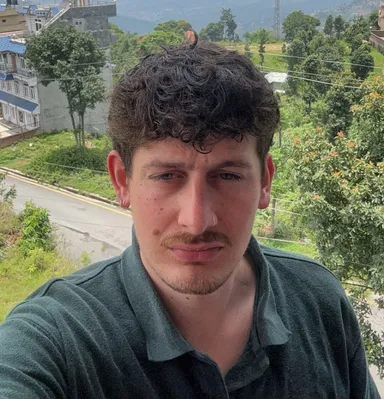Table of Contents
My journey through medical school was not a straightforward one. It weaved through mountains built from uncertainties which seemed impossible to climb and took me through the best and worst moments of my life to date.
I swam through waters soaked in doubt and self-loathing at times, coloured by the weight of grief and life’s uncertainties.
And I could’ve drowned, but I didn’t.
I wonder if the person I was six years ago would recognise the person before me in the mirror today, carved and melded by the path and lessons life has taught me. I’m not sure I would recognise him either.
Even in my first year of medical school, this was severed short by the pandemic. Just as I finally felt as though I was growing into someone, something tangible and three-dimensional, the pandemic froze this before it had a chance to blossom.
Whilst the isolation and self-imposed personal development of social distancing provided me with some tools, I feel that it also stripped away others, stunting other facets of my character which I didn’t fully appreciate until much later.
Coming from a working-class family and being a first-generation university student added a layer to my university experience, which at times enveloped me, making me feel isolated from some of my peers. Those who are in or have gone to medical school will be aware of the wide variety of students who study medicine.
Still, they will also be conscious of the significant proportion who come from more privileged backgrounds. Whilst, of course, there is nothing wrong with this, this is something that is often not acknowledged or spoken about by the bodies that govern medical education.
For context, I received the maximum loan allowance, and I held various part-time jobs as a student to make ends meet. From barista to waiter to bartender, I had many weekends spent working rather than being able to relax after a busy week at placement, studying for an upcoming exam, or socialising with my friends. The strain of this became increasingly apparent towards the end of my studies, contributing to my burnout and overstretch.
Throughout my final two years studying, my income from both SFE and NHSBSA decreased drastically, with the combined amount not even covering my rent and bills for the year. Not surprisingly, this didn’t leave a positive mark on my life at the time; instead, it tarnished my ability to cope with the stress of finals and increased the mental load I carried.
In my final year, these pressures were surmounted to something so great that when I’m being candid, I’m not ashamed to admit I thought it would break me with the sheer weight that it bore down on me.
Of five final exams, I retook four, sitting a total of nine exams. Every failure was borderline, which, in a way, twisted the knife of defeat a little more; the few marks I fell short on seemed to reflect a deeper flaw and lack of discipline within myself. This took some work in reframing and shifting my thought patterns surrounding this.
I was eventually led to pursue an ADHD diagnosis, which granted me reasonable adjustments. With these, I significantly improved my scores in the resit exams, and I could finally acknowledge that failure was not a reflection of my character or lack of drive - the ability to continue when no light seemed to be at the end of the tunnel was what shone the brightest.
No one provided the compass I so desperately craved to navigate the amalgamation of roles I shifted through - from medical student, to a dying patient’s son, to young adult, to lover, and now to doctor.
But now, I don’t think that such a thing exists. The trials and tribulations of life, the lessons it teaches you when you wish so desperately not to be a student of its class, have no rulebook or blanket solution to soothe its blows.
Now, I realise I had many of those answers all along. The bittersweet agony of love that engrains all genuine human connections. The very fabric that defines who we are. My friends and loved ones have stood by me and shaped the man I am today—my partner, who has sat by my side in my darkest hours. And I owe them my life and eternal gratitude. While love took so much from me in different forms, it gave me more than I could ever dream to ask for, too.
Six years later, at the end of my journey at medical school, I find myself deep in a period of reflection. Despite everything that stood before me, I found my voice in the end.
Here, I have found a space within myself to reflect, to watch as an older version of me shatters and falls to the floor. As I gaze within to a version of myself with an infinitely stronger voice, it sings songs of the path I have walked, of the fruits of hope that have grown and flourished in the soil of adversity—an anthem of self-discovery in a hazy, restless summer.
Author: Dr. Luka Dancyger-Stevens lives in the U.K. and is an FY1 Doctor at Chesterfield Royal Hospital, NHS.







Comments